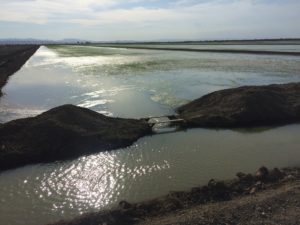I recently read the editorial titled “Why Factory Farms are Good For the Environment” from the New York Times. The author, Jayson Lusk, does a nice job outlining the various technological advances observed on large farms that have provided an increase in food production per acre on American Farms over the past 50 years. This includes the use of genetically modified crops which provided the ability to utilize no-till technologies and reduce soil erosion, the use of higher yielding genetic traits in annual crops, and adoption of precision ag technologies such as yield monitoring, sensors, variable rate fertilization, and drones. An interesting article.
Although I am always skeptical of the term “factory farm,” the article does highlight the economies of scale. Large farm operations generally have more money to invest in technologies because the cost is diluted over a larger number of acres. For example, a $100,000 piece of equipment only needs to save or make $10/acre for a 10,000 acre farm in comparison to $1000/acre for a 100 acre farm within the equipment’s depreciated life term. Smaller farms have a harder time making large purchases because of the longer cost recovery period.
My experience within California has found the trends highlighted in the article to be mostly true. Larger operations adopt new technologies earlier. I also have seen larger operations take a more active approach in reducing inputs (water, fertilizer, and pesticides). This essentially is due to the cost per acre being multiplied by a large number of acres. Even of more interest is that many of these farms, once realizing the savings, employ individuals who assist with better timings of materials – creating high paying jobs, reducing use of materials, all while maintaining or increasing production. Some smaller and mid-size operations do take similar approaches (just like not all large farms do…).
The ability to adopt a new technology is simply a component of economics. Is the strategy going to maintain production while reducing cost? Will yield be increased with increasing inputs leading to an increase in net revenue? Does the practice increase the longevity of farm production? Will the information provided be used and can it be processed in timely matter to assist in decision making? These are the questions that I ask when considering a new tool or technique.
So back to the topic question…Are large farms good for the environment? Yes, but only if they are using the resources to increase production while reducing the usage of resources and impact on the environment. This takes time, skill, and most of all, a desire to increase the sustainability of an operation. My hope is that all operations begin to feel and operate this way.

Leave a Reply